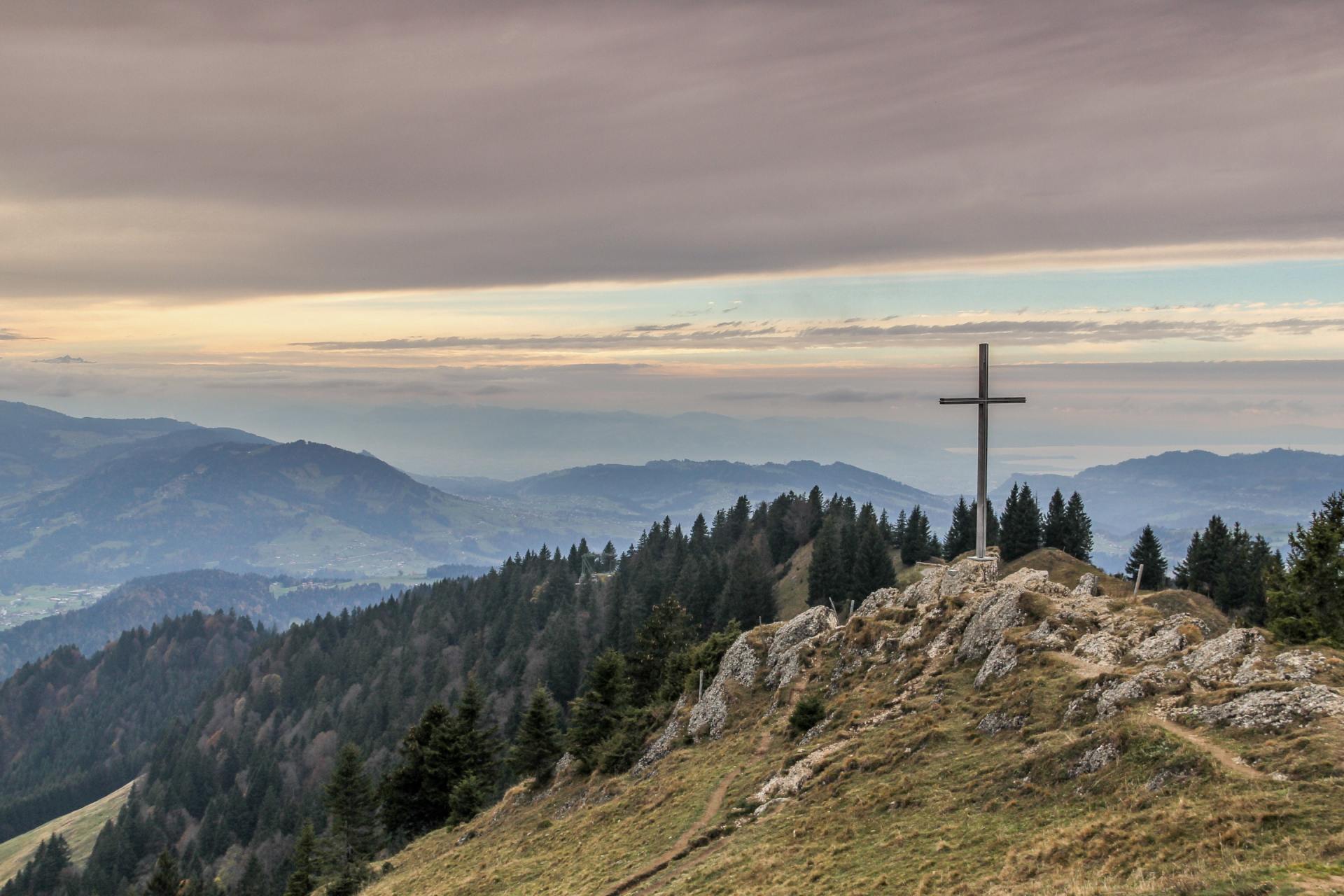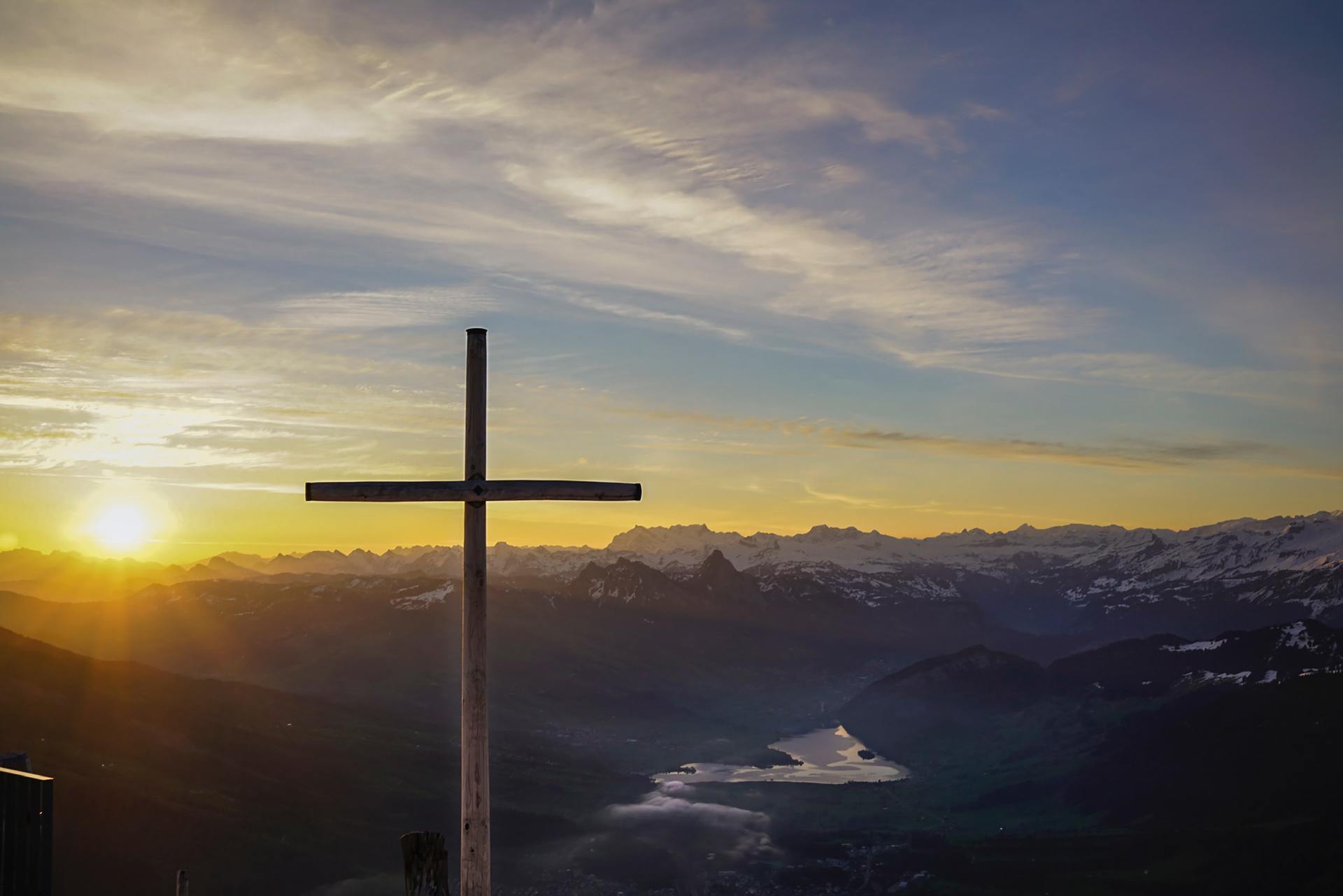Search results for 'Identity' (42)

The story continues...I'm still working on the pondless waterfall in our front yard. I shared this project with you two weeks ago in Playin' In the Dirt. Since then I've had to rework sections of the stream three different times because we were losing too much water. I am now an expert on evaporation rates and excessive splash, two causes of water loss. This morning I tore the whole thing apart and I'm starting over.

Have you ever watched DreamWorks Animation's Kung Fu Panda? I stumbled across it recently and thoroughly enjoyed Jack Black's performance as a bumbling, noodle selling, kung fu enthusiast, giant panda named P o. Set in ancient China, it is more than a humorous slapstick comedy. The core message of the story jumped out at me as I have been focusing recently on the concept of being. Po is shockingly identified as the Dragon Warrior and he reluctantly enters training. The goal of the training is to receive the Dragon Scroll, which is believed to hold the secret to limitless power. Now I don't want to spoil the big reveal but I will say that what Po realizes is the same as what I speak to in the concept of being and authentic identity. So, where do we find the secret to our "power?" I praise You, because I am wonderfully made; wonderful are Your works! My very self You know. Psalm 139:14 God knows it; and we must seek Him with all of our hearts in order to find it. As it was in the movie, the answer is stunningly simple. Our authentic identity is already within us. The challenge for Po in the movie was in seeing himself accurately and not the way others saw him. Even his teacher scoffed at the idea that Po was anything more than an underachieving dreamer who overate when he was anxious. Po's problems are rooted in the fact that he believes the lie of his false identity much more than he does his authentic one. Is it possible that you do the same? Who could have imagined that beneath all of Po's girth lived the Dragon Warrior? What's hidden from view in you? Seek God for understanding as to who He created you to be. Spoiler Alert: the secret of your limitless power is already in you. God placed it there and He wants you to be who He authentically created you to be.

On a recent walk with Maria, we picked up an acorn lying near the road. It looked different from the ones we were most familiar with but looking skyward there was no doubting where it had come from. The majestic one-hundred-foot oak tree towered over us. Having grown up with two oak trees in my back yard, each more than a hundred years old, I have always loved acorns. Within the acorn is a tiny embryo that bears the potential to become a mighty oak tree. In fact, that is the only thing an acorn can become. That is God's design. Then God said: Let the earth bring forth vegetation: every kind of plant that bears seed and every kind of fruit tree on earth that bears fruit with its seed in it. And so it happened: the earth brought forth vegetation: every kind of plant that bears seed and every kind of fruit tree that bears fruit with its seed in it. God saw that it was good. Genesis 1:11-12 Take some time to reflect on the acorn and the oak. My question to you is do you know who you were created to be? There is no doubt in God's mind who you are. Can you embrace the idea that God has placed in you all you are meant to be? You are full of potential. That is God's design. "Faith sees a beautiful blossom in a bulb, a lovely garden in a seed, and a giant oak in an acorn.” -- William Arthur Ward

It was a unique opportunity for me to coach four individuals who all had the same job but who managed four different geographical areas. Typically, I coach members of a team who have varying responsibilities. Because we were all still living in "quarantine" mode we began the process in an online retreat where I introduced the concept s of the Our Journey WITH God book to the team. We then scheduled coaching sessions that allowed me to guide each individual through the four sections of the book. In the early phase of the coaching process we talk through the concept of false identity. This is helpful because it allows us to recognize those times when we are living as someone other than who we truly are. This happens because long held beliefs and habits permeate our perceptions of who we are and we unknowingly behave in ways contrary to our authentic self. In fact, it is one of the most common things I observe in the people I coach. The pressure we face to be something we are not is relentless. This can cause us to be prone to doubting and even demeaning some of their most uniquely authentic qualities. I reminded each person that even though they were all doing the same job, they should be doing so in their own unique way. This is because they all have different authentic identities. In the last section of the book I make a clear distinction between being and doing with God. To be precise I say: "The primary starting point and emphasis of our journey must always focus on knowing and being with God, not just doing for God." This concept goes beyond prayer time with God, which is, of course, incredibly important. What we learn in spending that time with Him is a greater understanding of who He created us to be, uniquely––authentically. This was the message that God had made so clear to me while coaching other teams last year. What I was hearing God say was, "I want them to be who I created them to be." For you created my inmost being; you knit me together in my mother’s womb. I praise you because I am fearfully and wonderfully made; your works are wonderful, I know that full well. Psalm 139 13-14 What beliefs do you harbor about yourself that may not be true and authentic? Do you have habitual behaviors that continually frustrate you because they leave you feeling empty and less than whole? Where might you be living falsely? Ask God to help you uncover this false identity so that you can live authentically, true to who you are. Know full well that God desires that you live as He created you to be, in your authentic identity! Click here to learn more about Joe's coaching ministry.

It wasn't supposed to be like this. For almost six years as I toiled to write the book, I dreamed of getting out on the road and sharing the message God had given me. In the months just before publication I began to make plans for promoting the book. I even took an online course about how to build an "Author Platform". During a trip to the publisher in Florida I was really encouraged when the agent we were meeting with got excited when I described myself as a speaker who writes. It seemed to energize her and she shared my statement with other staff members. Many authors are overwhelmed and intimidated with the prospect of having to speak about their books. I not only knew what it meant to have a platform, I was experienced at speaking and looking forward to doing it. Our Journey WITH God was sure to be a hit! But, God had other plans... Even before the book was published God opened the door for me to do coaching for two different local parishes. This wasn't what I expected but I eagerly jumped in. This was an opportunity to do a deep dive into the content of Our Journey WITH God with those I was coaching. And I was learning a ton. What great material for my talks! Even in the midst of my busy coaching schedule, which included as many as 12-14 sessions a week, I was cognizant of my desire to build my "author's platform". I couldn't wait to go on tour to share all God had given to me. I remembered how much I enjoyed my years on the corporate speaking circuit and now I had a message of eternal importance! Let's get going, Lord!! But, God had other plans. Even though I was really busy with my coaching I was still striving to come up with plans to promote the book. But as Fall moved into Winter, I was hearing a clear and consistent message that God wanted me to wait. Additionally, I was becoming more and more clear through my coaching that He was revealing an almost singular message. We are first and foremost called to––BE! "So Lord you're asking me to wait on you, and while I'm doing so, to simply be with you?" I have to be honest, this has been really hard for me, especially in the midst of the quarantine. That's why I wanted to share this message with you. We are all having to wait and we aren't even sure what it is we are waiting for because everything has changed. This morning I was reading My Utmost For His Highest, a devotional by Oswald Chambers. It was entitled Gracious Uncertainty and this is the verse it is based on: ...it has not yet been revealed what we shall be... 1 John 3:2 This verse and Chambers' words really resonated with me, "Certainty is the mark of the commonsense life––gracious uncertainty is the mark of the spiritual life. To be certain of God means that we are uncertain in all our ways, not knowing what tomorrow may bring." That's it! Just as I wrote in the end of Our Journey WITH God , He reveals things in His time. That was the most consistently profound insight for the people that I was coaching. They could look back through their own life's stories and see how God had always been with them and in those moments of revelation they saw what it meant to "be" as God created them to be. We are created to be. Regardless of what happens in and around us we must acknowledge that God is always with us. When we do, we live with gracious uncertainty .

Have you ever had a phrase keep forcing its way into your consciousness? Lately, "do what you love" has done that with me. "Do what you love and love what you do." Sounds good, right? Or how about "Do what you love and never work a day in your life." There is even a book titled, Do What You Love and the Money Will Follow . My Google search also produced, “Doing what you love is where happiness lives.” Wonderful sentiment but is it realistic that we can follow our desires to contentment, financial success and happiness? The website that charged $233 for an online course sure seemed to think so. Here is the banner for that course. Do What You Love: The life-changing e-course. Design your life the way you want to live it! As I looked through the outline of the course something immediately struck me. The first section of it was titled, Choose Your Destination. In other words, begin with the end in mind. I'm not suggesting that you take this course; no, my advice is quite the opposite. Instead of beginning with the end in mind begin with the beginning in mind. “Let us make them in our image, after our likeness.” The Our section of Our Journey WITH God begins with this all-important passage from Genesis. When we embrace the deeply profound significance of this verse we begin a journey to knowing who God is, which leads to knowing who we truly are. First and foremost, we were created uniquely. Being precedes doing. In understanding who God created us to be we then discover our divine purpose. While doing what you love might make you happy, being who you are impacts the world as God planned for you. Take this phrase with you today, “Be who you were created to be.”

When Joey, our oldest son, was five years old we signed him up for an instructional soccer league. At one of Joey's first practices, the coach broke the large group of boys and girls into teams. Joey quickly demonstrated a knack for dribbling a soccer ball that most of the other kids didn't seem to have yet. Before long Joey was scoring goals almost at will. Even placing him on defense didn't slow him down as he ended up with seven goals. One of the father's observing this, commented to me about Joey saying, "He's intense!" The thought crossed my mind that Joey might be special. This plays out in the Gospel this week as well. When the time arrived for Elizabeth to have her child she gave birth to a son. Her neighbors and relatives heard that the Lord had shown his great mercy toward her, and they rejoiced with her. When they came on the eighth day to circumcise the child, they were going to call him Zechariah after his father, but his mother said in reply, "No. He will be called John." But they answered her, "There is no one among your relatives who has this name." So they made signs, asking his father what he wished him to be called. He asked for a tablet and wrote, "John is his name," and all were amazed. Immediately his mouth was opened, his tongue freed, and he spoke blessing God. Then fear came upon all their neighbors, and all these matters were discussed throughout the hill country of Judea. All who heard these things took them to heart, saying, "What, then, will this child be?" For surely the hand of the Lord was with him. The child grew and became strong in spirit, and he was in the desert until the day of his manifestation to Israel. Luke 1:57-66, 80 Some context is important here. Elizabeth was barren and both (she and Zechariah her husband) were advanced in years, so her pregnancy was special. Additionally, the naming of the baby was also unusual. The expectation to give children the "family" name was a powerful one in biblical times. No one would have blinked an eye if Elizabeth's son had been named after his father, Zechariah. This progression of events pointed to something special about baby John as everyone wondered, "What, then, will this child be?" Later in Luke's Gospel, as John has actually faded from the scene, Jesus makes a profound statement about him. "I tell you, among those born of women, no one is greater than John..." Elizabeth and Zechariah's little John became the forerunner of Jesus, the Christ. He really was special but as Jesus followed up this pronouncement about John He said, "yet the least in the kingdom of God is greater than he." In other words, special in God's eyes is very different from that of the world. Joey was a special soccer player when he was young. But he never even played varsity soccer in high school. "What, then, will this child be?" Joey's natural intensity and passion have made him an exceptional 8th-grade math teacher. He also revived his school's soccer program in just a couple of short years. He impacts the lives of impressionable, underprivileged kids in ways he probably will never know. John the Baptist became the person God had created him to be. I love knowing that Joey is doing the same. I wonder about how well I'm doing on the same account. How about you?

Have you heard the saying, "I know a guy"? Today I made a U-turn and drove twice as far as I needed to buy tires from my favorite service guy. Brad has been absolutely top-notch in every interaction I've had with him for the four years I've been driving a Mazda. He takes a very proprietary interest in me and my car. This week's Gospel provides clarity on an even more elevated level of care. Jesus said: "I am the good shepherd. A good shepherd lays down his life for the sheep. A hired man, who is not a shepherd and whose sheep are not his own, sees a wolf coming and leaves the sheep and runs away, and the wolf catches and scatters them. This is because he works for pay and has no concern for the sheep. I am the good shepherd, and I know mine and mine know me, just as the Father knows me and I know the Father; and I will lay down my life for the sheep. I have other sheep that do not belong to this fold. These also I must lead, and they will hear my voice, and there will be one flock, one shepherd. This is why the Father loves me, because I lay down my life in order to take it up again. No one takes it from me, but I lay it down on my own. I have power to lay it down, and power to take it up again. This command I have received from my Father." John 10:11-18 Jesus, in calling himself the good shepherd, explains very clearly that He is willing to die for His sheep. He is also clear as to why. It is because of the love between Jesus and His Father. This kind of love is otherworldly in that it is unconditional, agape love. It is not an emotional love. It is a choice freely made. In the case of the good shepherd, Jesus is making it clear that His care for HIs sheep is rooted in love, not duty or obligation. The sacrificial nature of this kind of love emanates from a loving God who loves us beyond our ability to grasp. We know unconditional love when we see and experience it just like we do when we receive excellent service. Our good shepherd knows what we need and He provides it exactly when we need it. We simply have to trust.

When I read this week's Gospel I realized that I needed to share with you what I'm going through in spite of the fact that it's very personal. My recent struggles are deeply personal and they are getting in the way of what I know to be true. I'm in a strange place and I'm not sure what to do or where to go. It feels like I'm taking one step forward followed by two steps back. For example, we went to a concert last Friday night. Chris Tomlin and Matt Maher headlined the Worship Night in America show. It was wonderful. I truly felt God's presence and my spirit was lifted in spite of my recent struggles. However, three days later I'm back in my funk. Why does this happen? Is my answer in the Gospel? The two disciples recounted what had taken place on the way, and how Jesus was made known to them in the breaking of bread. While they were still speaking about this, he stood in their midst and said to them, "Peace be with you." But they were startled and terrified and thought that they were seeing a ghost. Then he said to them, "Why are you troubled? And why do questions arise in your hearts? Look at my hands and my feet, that it is I myself. Touch me and see, because a ghost does not have flesh and bones as you can see I have." And as he said this, he showed them his hands and his feet. While they were still incredulous for joy and were amazed, he asked them, "Have you anything here to eat?" They gave him a piece of baked fish; he took it and ate it in front of them. He said to them, "These are my words that I spoke to you while I was still with you, that everything written about me in the law of Moses and in the prophets and psalms must be fulfilled." Then he opened their minds to understand the Scriptures. And he said to them, "Thus it is written that the Christ would suffer and rise from the dead on the third day and that repentance, for the forgiveness of sins, would be preached in his name to all the nations, beginning from Jerusalem. You are witnesses of these things." Luke 24:35-48 Even though they experienced Jesus' presence and their "hearts had been burning within them" the disciples still struggled. They were troubled and had questions in their hearts. Jesus proved to the disciples that He was present with them in body. Not only did Jesus show them HIs scars but He also ate fish to demonstrate His physical presence. Once He established this Jesus spoke truth. In a few sentences, He brought clarity to everything that had happened, was happening and if we read further what was to happen. (The coming of the Holy Spirit... "And [behold] I am sending the promise of my Father...") The answer to our struggles, doubts and fears are always found in Jesus. I'm not being flippant. If we listen to what He said to the disciples in this Gospel passage, Jesus' coming, suffering, death and resurrection applies to all of humanity's ills. You and I are no different. As I wrote these words today Jesus helped me to understand the why of my struggles. More importantly, He showed Himself to me in His Words (read the Gospel above) and in them, I have found the peace that has escaped me for some time. "I am a witness to these things!"

It strikes me as odd that I need to be reminded that I have a Reminders app on my phone. I use it sparingly but when I do it can be extremely helpful in my busy and often distracted life. Siri hears me and repeats my message to ensure that she got it right and then she promises to remind me. Then at the appointed time, up pops my reminder. In this week's Gospel we hear about the most important "reminder" of all time. On the evening of that first day of the week, when the doors were locked, where the disciples were, for fear of the Jews, Jesus came and stood in their midst and said to them, "Peace be with you." When he had said this, he showed them his hands and his side. The disciples rejoiced when they saw the Lord. Jesus said to them again, "Peace be with you. As the Father has sent me, so I send you." And when he had said this, he breathed on them and said to them, "Receive the Holy Spirit. Whose sins you forgive are forgiven them, and whose sins you retain are retained." Thomas, called Didymus, one of the Twelve, was not with them when Jesus came. So the other disciples said to him, "We have seen the Lord." But he said to them, "Unless I see the mark of the nails in his hands and put my finger into the nailmarks and put my hand into his side, I will not believe." Now a week later his disciples were again inside and Thomas was with them. Jesus came, although the doors were locked, and stood in their midst and said, "Peace be with you." Then he said to Thomas, "Put your finger here and see my hands, and bring your hand and put it into my side, and do not be unbelieving, but believe." Thomas answered and said to him, "My Lord and my God!" Jesus said to him, "Have you come to believe because you have seen me? Blessed are those who have not seen and have believed." Now Jesus did many other signs in the presence of his disciples that are not written in this book. But these are written that you may come to believe that Jesus is the Christ, the Son of God, and that through this belief you may have life in his name. John 20:19-31 Many thoughts surely swirled through the minds of the disciples as they hid in fear. "This isn't what we expected to happen." "What now?" Then Jesus appeared. When He does greet the disciples, Jesus actually repeated Himself. "Peace be with you." Jesus states before and after showing the disciples His wounds. In the midst of their joy in Jesus' resurrection, the disciples are reminded of His death. The nail marks and the wound in Jesus' side remain on His resurrected body. They remind the disciples of the reason Jesus came in the first place. Because we look back on Jesus' life, death and resurrection we have the advantage of seeing the big picture. We see God's story of creation, the fall in the garden along with the struggles of the Israelites to remain true to God prior to Jesus' coming. Most importantly, we see salvation through His cross. In all of this, we see God's purposes. Therein lies the Greatest Reminder... "...that you may come to believe that Jesus is the Christ, the Son of God, and that through this belief you may have life in his name."

Have you ever had an experience that caused you to stop and say, "What just happened?" We just had a family emergency that caused me to look back and ask that question. I'm still trying to make sense of everything that happened. With Palm Sunday upon us, I'm wondering about how those around Jesus might have answered that question in the days surrounding His crucifixion. As soon as morning came, the chief priests with the elders and the scribes, that is, the whole Sanhedrin held a council. They bound Jesus, led him away, and handed him over to Pilate. Pilate questioned him, "Are you the king of the Jews?" He said to him in reply, "You say so." The chief priests accused him of many things. Again Pilate questioned him, "Have you no answer? See how many things they accuse you of." Jesus gave him no further answer, so that Pilate was amazed. Now on the occasion of the feast he used to release to them one prisoner whom they requested. A man called Barabbas was then in prison along with the rebels who had committed murder in a rebellion. The crowd came forward and began to ask him to do for them as he was accustomed. Pilate answered, "Do you want me to release to you the king of the Jews?" For he knew that it was out of envy that the chief priests had handed him over. But the chief priests stirred up the crowd to have him release Barabbas for them instead. Pilate again said to them in reply, "Then what do you want me to do with the man you call the king of the Jews?" They shouted again, "Crucify him." Pilate said to them, "Why? What evil has he done?" They only shouted the louder, "Crucify him." So Pilate, wishing to satisfy the crowd, released Barabbas to them and, after he had Jesus scourged, handed him over to be crucified. The soldiers led him away inside the palace, that is, the praetorium, and assembled the whole cohort. They clothed him in purple and, weaving a crown of thorns, placed it on him. They began to salute him with, "Hail, King of the Jews!" and kept striking his head with a reed and spitting upon him. They knelt before him in homage. And when they had mocked him, they stripped him of the purple cloak, dressed him in his own clothes, and led him out to crucify him. They pressed into service a passer-by, Simon, a Cyrenian, who was coming in from the country, the father of Alexander and Rufus, to carry his cross. They brought him to the place of Golgotha — which is translated Place of the Skull — They gave him wine drugged with myrrh, but he did not take it. Then they crucified him and divided his garments by casting lots for them to see what each should take. It was nine o'clock in the morning when they crucified him. The inscription of the charge against him read, "The King of the Jews." With him they crucified two revolutionaries, one on his right and one on his left. Those passing by reviled him, shaking their heads and saying, "Aha! You who would destroy the temple and rebuild it in three days, save yourself by coming down from the cross." Likewise the chief priests, with the scribes, mocked him among themselves and said, "He saved others; he cannot save himself. Let the Christ, the King of Israel, come down now from the cross that we may see and believe." Those who were crucified with him also kept abusing him. At noon darkness came over the whole land until three in the afternoon. And at three o'clock Jesus cried out in a loud voice, "Eloi, Eloi, lema sabachthani?" which is translated, "My God, my God, why have you forsaken me?" Some of the bystanders who heard it said, "Look, he is calling Elijah." One of them ran, soaked a sponge with wine, put it on a reed and gave it to him to drink saying, "Wait, let us see if Elijah comes to take him down." Jesus gave a loud cry and breathed his last. The veil of the sanctuary was torn in two from top to bottom. When the centurion who stood facing him saw how he breathed his last he said, "Truly this man was the Son of God!" Mark 15:1-39 As Jesus entered Jerusalem, those closest to Him must have constantly wondered about everything that was swirling around Jesus. The Sanhedrin, Pilate and the crowds all played a part in an emotionally charged "trial", where the defendant passively accepted His brutal and gruesome fate. The question, "What just happened?" would have elicited many answers depending on the individual. We do hear an answer from one person, the centurion at the foot of the cross. This man showed up for an ordinary workday. (Yes it was ordinary for a Roman centurion to be a part of a crucifixion.) He witnesses the death of another "criminal" he may never have laid eyes on before. However, something causes him to come to an extraordinary conclusion. The experience of listening to Jesus' passion and crucifixion each year provides us with an opportunity. We can ask ourselves, "What just happened?" Depending on where we are in life at that instant we will have a unique response. The Lenten journey allows us to reflect on what happened to Jesus. We must, at the same time, remember Who He was. The centurion helps us in that. "Truly this man was the Son of God." Have a blessed Holy Week!

The Winter Olympics are almost here and I'm excited. While I love the competition I especially look forward to getting to know the athletes and their life's journey to the Olympics. I just read an article about Maame Biney, a 17 year-old American speed skater who is expected to do great things in PyeongChang, South Korea. She was asked about how her life has been different since she qualified for the Olympic team. Her response, that her new-found fame has been overwhelming, made me think about this week's Gospel. Then they came to Capernaum, and on the sabbath Jesus entered the synagogue and taught. The people were astonished at his teaching, for he taught them as one having authority and not as the scribes. In their synagogue was a man with an unclean spirit; he cried out, "What have you to do with us, Jesus of Nazareth? Have you come to destroy us? I know who you are—the Holy One of God!" Jesus rebuked him and said, "Quiet! Come out of him!" The unclean spirit convulsed him and with a loud cry came out of him. All were amazed and asked one another, "What is this? A new teaching with authority. He commands even the unclean spirits and they obey him." His fame spread everywhere throughout the whole region of Galilee. Mark 1:21-28 It is important to recognize that the conversation in this passage is between Jesus and the unclean spirit. It is the voice of the spirit that speaks to Jesus acknowledging who He is, "the Holy One of God." Those that observed Jesus driving out the demon immediately change their impression of who He is. As the story continues Jesus' fame spreads and the crowds surely follow. The question we need to ask is, why did they seek out Jesus? There surely was a level of fascination that accompanied Jesus' "performance". What draws us to Jesus? Is it what He has done for us? Or is it our hope that He will do something astonishing for others we love? What should we be focusing on? To me the draw of the Olympics is getting to know the people who perform sometimes astonishing athletic feats. I love the response that Maame Biney had to the question of being a role-model. "I don't think of myself as a role model because I'm 17 years old and still a kid. But that's amazing, and I hope to inspire everyone to go for it." Maame knows who she is. Jesus did too. Knowing 'the Holy One of God' is what should inspire us all. "Go for it!"

I spoke to a friend today who just became a father for the first time. After months of waiting the baby had arrived. I immediately wanted to know what Rory's little girl's name was. Madeline Noel, how beautiful! Names are obviously important in this week's Gospel: John was standing with two of his disciples, and as he watched Jesus walk by, he said, "Behold, the Lamb of God." The two disciples heard what he said and followed Jesus. Jesus turned and saw them following him and said to them, "What are you looking for?" They said to him, "Rabbi" — which translated means Teacher —, "where are you staying?" He said to them, "Come, and you will see." So they went and saw where Jesus was staying, and they stayed with him that day. It was about four in the afternoon. Andrew, the brother of Simon Peter, was one of the two who heard John and followed Jesus. He first found his own brother Simon and told him, "We have found the Messiah" — which is translated Christ —. Then he brought him to Jesus. Jesus looked at him and said, "You are Simon the son of John; you will be called Cephas" — which is translated Peter. John 1:35-42 Jesus is referred to by no fewer than four names in this short passage (six if you count the definitions of two of them). Names were critically important in biblical times. Zechariah gave John (the Baptist) his name after hearing from the angel Gabriel. John pronounced one of Jesus' names as "Lamb of God." Andrew, knowing the significance of John's pronouncement immediately followed Jesus. Next is Simon who hears the long awaited name, Messiah, from his brother Andrew. When Simon meets the "Christ" he receives a new name, Peter. Parents choose their children's names with care, often giving names with great family meaning. So what is really in a name? Identity. We are identified by our names. In the case of Jesus, understanding His identity means we must understand the meaning of His many names. We also learn of His purpose. John's identification of Jesus as the Lamb of God speaks to why Jesus came. He came to be God's final sacrifice for sin. Jesus died for Rory and Madeline and for you and me. So what's in a name? When it comes to Jesus' name as the Lamb of God, He suffered and died so that our names could be written in the "Book of Life."

This morning Maria and I reflected on 1 Corinthians 12. It sparked some interesting conversation about gifts. In this passage Paul talks of the gifts of the Holy Spirit which are meant for the whole church. As I sat down to write, the connection between that passage and this week's Gospel became clear to me. When Jesus was born in Bethlehem of Judea, in the days of King Herod, behold, magi from the east arrived in Jerusalem, saying, "Where is the newborn king of the Jews? We saw his star at its rising and have come to do him homage." When King Herod heard this, he was greatly troubled, and all Jerusalem with him. Assembling all the chief priests and the scribes of the people, He inquired of them where the Christ was to be born. They said to him, "In Bethlehem of Judea, for thus it has been written through the prophet: And you, Bethlehem, land of Judah, are by no means least among the rulers of Judah; since from you shall come a ruler, who is to shepherd my people Israel." Then Herod called the magi secretly and ascertained from them the time of the star's appearance. He sent them to Bethlehem and said, "Go and search diligently for the child. When you have found him, bring me word, that I too may go and do him homage." After their audience with the king they set out. And behold, the star that they had seen at its rising preceded them, until it came and stopped over the place where the child was. They were overjoyed at seeing the star, and on entering the house they saw the child with Mary his mother. They prostrated themselves and did him homage. Then they opened their treasures and offered him gifts of gold, frankincense, and myrrh. And having been warned in a dream not to return to Herod, they departed for their country by another way. Matthew 2:1-12 The story of the magi's visit to Jesus is well known for many reasons. Among them are the gifts they bring to the newborn king. Matthew's Gospel mentions three specific gifts each of which had important meaning in Jesus' time. In a writing that dates back to 248 AD, the Church Father Origen explains the three gifts this way, "gold, as to a king; myrrh, as to one who was mortal; and incense, as to a God." This acknowledgement of Jesus' true identity came from magi who had journeyed some distance to see this king, this man and most significantly, this God.

Did you ever notice how often the phrase "I am" comes up in the Bible? Do you know where it originates? You have to go way back to Exodus where Moses asks God His name to understand its origin and significance. In this week's Gospel John the Baptist distinctly says, "I am not" several times before saying "I am". Read on to find out why. A man named John was sent from God. He came for testimony, to testify to the light, so that all might believe through him. He was not the light, but came to testify to the light. And this is the testimony of John. When the Jews from Jerusalem sent priests and Levites to him to ask him, "Who are you?" He admitted and did not deny it, but admitted, "I am not the Christ." So they asked him, "What are you then? Are you Elijah?" And he said, "I am not." "Are you the Prophet?" He answered, "No." So they said to him, "Who are you, so we can give an answer to those who sent us? What do you have to say for yourself?" He said: "I am the voice of one crying out in the desert, 'make straight the way of the Lord,'" as Isaiah the prophet said." Some Pharisees were also sent. They asked him, "Why then do you baptize if you are not the Christ or Elijah or the Prophet?" John answered them, "I baptize with water; but there is one among you whom you do not recognize, the one who is coming after me, whose sandal strap I am not worthy to untie." This happened in Bethany across the Jordan, where John was baptizing. John 1:6-8, 19-28 John the Baptist's presence caused a stir and the religious elite wanted to know who he was. As they question him John first clarifies who he is not; the Christ, Elijah, or the Prophet. The Jewish people were always looking for their promised Messiah. John eventually does say, "I am..." as the messenger who tells them that they aren't recognizing the one among them who is...I AM. Further along in the Gospel of John, Jesus speaks to the Jewish leaders directly. "...before Abraham came to be, I AM.” His use of God's name first spoken to Moses at the burning bush was pure blasphemy to the Jewish leaders. They never even spoke these words out of reverence to God and His Name, I AM. For this man, Jesus, to not only speak God's Name but to also refer to himself as I AM caused a fury and they tried to stone Jesus. It is in the context of these two words that John the Baptist's announcement to the Jews was that I AM had already come. The same is true today, but we pause to acknowledge a profound truth... We need to celebrate that I AM came to us as a baby to die for our sins so that we might be with Him forever!

Last week's blog made it clear that I was a baseball fan so I have a confession to make. I did not watch my beloved Pirates win an extraordinary game last night. In spite of being no-hit into the tenth inning the Pirates won with a dramatic home run. And I missed it! I share this with you because instead of spending my morning time with God I allowed myself to get caught up in all kinds of negative stuff when I started surfing on my phone through the news stories. It was amazing to me how quickly I got caught up in what people were saying online about any number of topics. Before I knew it I was anxious and had to put my phone down and refocus on God. In this week's Gospel Jesus asks His disciples about what the people are saying. Jesus went into the region of Caesarea Philippi and he asked his disciples, "Who do people say that the Son of Man is?" They replied, "Some say John the Baptist, others Elijah, still others Jeremiah or one of the prophets." He said to them, "But who do you say that I am?" Simon Peter said in reply, "You are the Christ, the Son of the living God." Jesus said to him in reply, "Blessed are you, Simon son of Jonah. For flesh and blood has not revealed this to you, but my heavenly Father. And so I say to you, you are Peter, and upon this rock I will build my church, and the gates of the netherworld shall not prevail against it. I will give you the keys to the kingdom of heaven. Whatever you bind on earth shall be bound in heaven; and whatever you loose on earth shall be loosed in heaven." Then he strictly ordered his disciples to tell no one that he was the Christ. Matthew 16:13-20 Jesus is not really concerned about who the people say He is. His intent comes through in the followup question to His followers. Peter hits a home run with his answer. "You are the Christ, the Son of the living God." Peter is not at all confused about Jesus' identity in spite of all the talk amongst the people. And Jesus affirms Peter's profession with an amazing profession of His own about Peter and his role in the Church. My experience this morning reminded me of how easy it is to get caught up in all that is happening around us. Josh Harrison was the savior for the Pirates last night with his game-winning home run. We don't have to look very far in our media saturated world to find debates about who and what will save us from everything that ails us. This morning I got sucked into the news and it distracted me. I lost sight of the Christ, the Son of the living God. Peter's profession is profound because it was the first of its kind. Have you professed Jesus as the Christ, the Son of the living God? Recently? Publicly? We sometimes argue vehemently about everything from sports to politics. But how passionately do we profess our faith in Jesus Christ?

How do you think Jesus, if he were present in human form, would be covered in the media compared to the transcendent figures of today? I just read online articles about two of today's most well-known individuals. Oprah Winfrey and Tom Brady have experienced sustained success at the top of their professions for decades. Oprah has achieved a level of success that her first name alone is recognizable worldwide. And Tom Brady just won his record-setting 5th Super Bowl with the New England Patriots, at the age of 39! In the Gospel today we see Jesus in a "transcendent" moment. Jesus took Peter, James, and his brother, John, and led them up a high mountain by themselves. And he was transfigured before them; his face shone like the sun and his clothes became white as light. And behold, Moses and Elijah appeared to them, conversing with him. Then Peter said to Jesus in reply, "Lord, it is good that we are here. If you wish, I will make three tents here, one for you, one for Moses, and one for Elijah." While he was still speaking, behold, a bright cloud cast a shadow over them, then from the cloud came a voice that said, "This is my beloved Son, with whom I am well pleased; listen to him." When the disciples heard this, they fell prostrate and were very much afraid. But Jesus came and touched them, saying, "Rise, and do not be afraid." And when the disciples raised their eyes, they saw no one else but Jesus alone. As they were coming down from the mountain, Jesus charged them, "Do not tell the vision to anyone until the Son of Man has been raised from the dead." Matthew 17:1-9 Jesus' inner circle got an unprecedented look at history. Two of the most famous figures of their storied past appear beside the transfigured Jesus. And if that wasn't enough, the voice of God Himself speaks of His Son. The disciples were overwhelmed to the point of falling face down on the ground in fear. I can't say I blame them. What happened next was, to me, the most surprising part. Jesus instructs the disciples not to say anything. No Tweets! No Instagram posts!! Nothing!!! Imagine their thoughts. "We have to wait to say anything about who we saw? Whom we heard?? Who you are, Lord???" How utterly antithetical to today's culture. Jesus didn't need nor want a PR machine promoting who He was. In fact, He often sought to move around somewhat anonymously. In spite of this, the crowds still found Him. Word still got around about this amazing person. That is the difference. Like Oprah and Tom Brady, Jesus was an amazing person. And as all humans eventually do, He died. But Jesus' life was just the beginning. Unlike the transcendent of today, His death, resurrection and ascension are what ultimately matter. What the disciples saw on the mountain that day long ago prefigured THE truly transcendent figure who is alive today and forever. You and I need to share that news as often as possible.

My friend John made an interesting statement this morning. He said that because he has been busy lately he hasn't followed the news and social media for the last four days. I was a little surprised because John usually pays a good bit of attention to the "media" that is so readily available through modern technology. I asked him how it felt and he said, "Great! The world isn't such a bad place." I agree with him and to be honest I instituted my own media filters some time ago in an effort to minimize the number of voices I hear. In this week's Gospel we hear a voice we all need to be listening to: Jesus said: "Amen, amen, I say to you, whoever does not enter a sheepfold through the gate but climbs over elsewhere is a thief and a robber. But whoever enters through the gate is the shepherd of the sheep. The gatekeeper opens it for him, and the sheep hear his voice, as the shepherd calls his own sheep by name and leads them out. When he has driven out all his own, he walks ahead of them, and the sheep follow him, because they recognize his voice. But they will not follow a stranger; they will run away from him, because they do not recognize the voice of strangers." Although Jesus used this figure of speech, the Pharisees did not realize what he was trying to tell them. So Jesus said again, "Amen, amen, I say to you, I am the gate for the sheep. All who came before me are thieves and robbers, but the sheep did not listen to them. I am the gate. Whoever enters through me will be saved, and will come in and go out and find pasture. A thief comes only to steal and slaughter and destroy; I came so that they might have life and have it more abundantly." John 10:1-10 Thanks to one of the positive aspects of technology I can actually share my voice with you on this topic.

In a blog entitled the Weekly Journey it is obvious that I focus on our individual and collective passing through time on our way to... so where does this journey end? As we reflect on the Palm Sunday Gospel it seems to end in death. Jesus stood before the governor, Pontius Pilate, who questioned him, "Are you the king of the Jews?" Jesus said, "You say so." And when he was accused by the chief priests and elders, he made no answer. Then Pilate said to him, "Do you not hear how many things they are testifying against you?" But he did not answer him one word, so that the governor was greatly amazed. Now on the occasion of the feast the governor was accustomed to release to the crowd one prisoner whom they wished. And at that time they had a notorious prisoner called Barabbas. So when they had assembled, Pilate said to them, "Which one do you want me to release to you, Barabbas, or Jesus called Christ?" For he knew that it was out of envy that they had handed him over. While he was still seated on the bench, his wife sent him a message, "Have nothing to do with that righteous man. I suffered much in a dream today because of him." The chief priests and the elders persuaded the crowds to ask for Barabbas but to destroy Jesus. The governor said to them in reply, "Which of the two do you want me to release to you?" They answered, "Barabbas!" Pilate said to them, "Then what shall I do with Jesus called Christ?" They all said, "Let him be crucified!" But he said, "Why? What evil has he done?" They only shouted the louder, "Let him be crucified!" When Pilate saw that he was not succeeding at all, but that a riot was breaking out instead, he took water and washed his hands in the sight of the crowd, saying, "I am innocent of this man's blood. Look to it yourselves." And the whole people said in reply, "His blood be upon us and upon our children." Then he released Barabbas to them, but after he had Jesus scourged, he handed him over to be crucified. Then the soldiers of the governor took Jesus inside the praetorium and gathered the whole cohort around him. They stripped off his clothes and threw a scarlet military cloak about him. Weaving a crown out of thorns, they placed it on his head, and a reed in his right hand. And kneeling before him, they mocked him, saying, "Hail, King of the Jews!" They spat upon him and took the reed and kept striking him on the head. And when they had mocked him, they stripped him of the cloak, dressed him in his own clothes, and led him off to crucify him. As they were going out, they met a Cyrenian named Simon; this man they pressed into service to carry his cross. And when they came to a place called Golgotha — which means Place of the Skull —, they gave Jesus wine to drink mixed with gall. But when he had tasted it, he refused to drink. After they had crucified him, they divided his garments by casting lots; then they sat down and kept watch over him there. And they placed over his head the written charge against him: This is Jesus, the King of the Jews. Two revolutionaries were crucified with him, one on his right and the other on his left. Those passing by reviled him, shaking their heads and saying, "You who would destroy the temple and rebuild it in three days, save yourself, if you are the Son of God, and come down from the cross!" Likewise the chief priests with the scribes and elders mocked him and said, "He saved others; he cannot save himself. So he is the king of Israel! Let him come down from the cross now, and we will believe in him. He trusted in God; let him deliver him now if he wants him. For he said, 'I am the Son of God.'" The revolutionaries who were crucified with him also kept abusing him in the same way. From noon onward, darkness came over the whole land until three in the afternoon. And about three o'clock Jesus cried out in a loud voice, "Eli, Eli, lema sabachthani?" which means, "My God, my God, why have you forsaken me?" Some of the bystanders who heard it said, "This one is calling for Elijah." Immediately one of them ran to get a sponge; he soaked it in wine, and putting it on a reed, gave it to him to drink. But the rest said, 'Wait, let us see if Elijah comes to save him." But Jesus cried out again in a loud voice, and gave up his spirit. And behold, the veil of the sanctuary was torn in two from top to bottom. The earth quaked, rocks were split, tombs were opened, and the bodies of many saints who had fallen asleep were raised. And coming forth from their tombs after his resurrection, they entered the holy city and appeared to many. The centurion and the men with him who were keeping watch over Jesus feared greatly when they saw the earthquake and all that was happening, and they said, "Truly, this was the Son of God!" Matthew 27:11-54 As Jesus "gave up his spirit" His journey does seem to end in death. From the heights of Jesus' kingly entrance into Jerusalem to the earthshaking moment of His death Jesus experienced a "weekly journey" like no other. That is because His journey to the cross was necessitated by humanity's sinful, fallen nature. "For the wages of sin is death..." Romans 6:23 All of humanity finds itself at the cross of Christ. We cannot overcome sin and death on our own. You and I must journey to the cross of Christ. It is at the cross that we must accept our need for salvation from the wages of sin - death. Our earthly, physical journey does end in death just as Jesus' holy week journey did. However, the story does not end at the cross. The journey continues. Stay tuned for next week's exciting edition of the Weekly Journey!


